
 Transition
Transition
By Iain M. Banks; Read by Peter Kenny
13.5 Hours – [UNABRIDGED]
Publisher: Hachette Audio
Published: 2009
Themes: / Science Fiction / Alternate Realities / Consciousness / Culture /
It was my understanding that Iain Banks published his non-science fiction under this name and his science fiction as Iain M. Banks. I haven’t read any of his other books, despite having Consider Phlebas on my book shelf for the last twenty one years. After reading Transition that book has suddenly jumped a lot closer to actually getting read. Sadly it isn’t available in audio or it would be a done deal.
Transition tells the disjointed, non-linear story of Tumudjin Oh. Oh is one of the many agents for The Concern, an organisation that spans the multi-verse, also known in some realities as l’Expédience. His job involves traveling to different realities and performing a wide range of tasks. From leaving a leaflet so that someone will see it and change their life, or stopping someone from entering a building moments before is collapses and even outright assassination. Banks employs the Many-Worlds variant of alternate realities and the implications of what realities they do, and more importantly do not
encounter, are central to the core conflict. Travel between realities is not by means of a portal or vehicle, but by the use of a drug, septus. This allows individuals to send their personalities to different realities, where they take over the body of someone already there. Usually, the invaded body is of a similar age and body type, but that isn’t set in stone. Once in the host body, they have access to the skills, knowledge and languages of their host. Travel is not a there and back, but a never-ending series of forward jumps that periodically may return to previously visited realities, but not necessarily into the same host as before.
Oh is very much the pawn between the rival Madame d’Ortolan and Mrs Mulverhill. d’Ortolan is the unofficial head of l’Expédience, and is grooming Oh. Much as the rebel Mrs Mulverhill does. He has a small case of OCD that follows him from body to body, sometimes stronger than others. We follow Oh in the present as he is sent on a mission by Madam d’Ortolan and also flashbacks telling how he has come to this point. Mrs Mulverhill, always wearing a veil in whatever reality and
body she has, attempts to seduce Oh both physically and politically.
There are other view points that we cycled throughout the book. Some are told in the first-person, others in third. Patient 8262 is a Transitioner who has hidden himself in a clinic in a reality where he hopes to escape his mysterious pursuers. Madame d’Ortolan has plans concerning the governing Council of the Concern, which Mrs Mulverhill objects to. Oh, who’s points-of-view sections are titled The Transitionary, meets d’Ortolan and received his orders. There are also
points of views from other characters, including Adrian Cubbish, a drug dealer turned financier, who we comes from our own reality.
Banks’ explore a range of topics, particularly in their first person narrations, from Christian Terrorists, torture, limited liability companies and drugs. Adrian goes into detail about his love affair with Cocaine, comparing it to the variety of alternatives.
The several points of view, particularly the multiple first person narrators confused me at first. I had to replay the first chapter or so once I figured out what was happening. Listen out for those POV changes, they could have been made clearer with a slightly longer pause perhaps.
The narrator, Peter Kenny, is outstanding. You can hear the thought behind the intonation of every phrase. A very detailed and thought out narration. The high point for me was Bisquitine’s insane ramblings. Jumping accent and voice sentence by sentence to bring her madness to life. Yet he uses the technique to make a certain sense of the stream
of apparently random phrases. I’ll be looking out for more from this narrator, even out with the SF genre.
As I mentioned at the start, I’ve not read any of Bank’s work before. If Transition has taught me nothing, it’s that I’ve been sorely remiss in this. Transition is a very dense, detailed story. The scenes come to life in only a few words, Banks’ prose is a delight to read. I’m certain that I’ll appreciate it even more on a second, and probably a
third listen. I’m sure I’ll understand more of the depth of the plot and the character’s machinations. Banks doesn’t dwell on what makes each reality distinct. Experienced transitioners can sense the make up of a reality, and their almost check-list breakdown as they assimilate into their new host body covers it. The realities themselves aren’t the centre stage, the only exception is Calbefraques, the base reality of l’Expédience. Instead the story focuses on the character’s.
After my single listen, I’m not sure about some aspects of the story, such as why so much time was spent with some characters. Adrian in particular, but also Patient 8262. Not that these sections weren’t entertaining, but I struggle to see what their character’s were contributing. Patient 8262 at least provided exposition on Transitioning and the setting as a whole, and so served as an overall narrator of sorts.
An engrossing listen that appeals to my love of complexity and traveling amongst alternate realities. Highly recommended.
Posted by Paul [W] Campbell

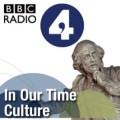 In Our Time Archive – Culture
In Our Time Archive – Culture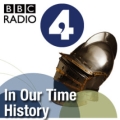 In Our Time Archive – History
In Our Time Archive – History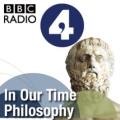 In Our Time Archive – Philosophy
In Our Time Archive – Philosophy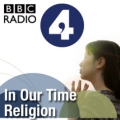 In Our Time Archive – Religion
In Our Time Archive – Religion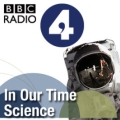 In Our Time Archive – Science
In Our Time Archive – Science






